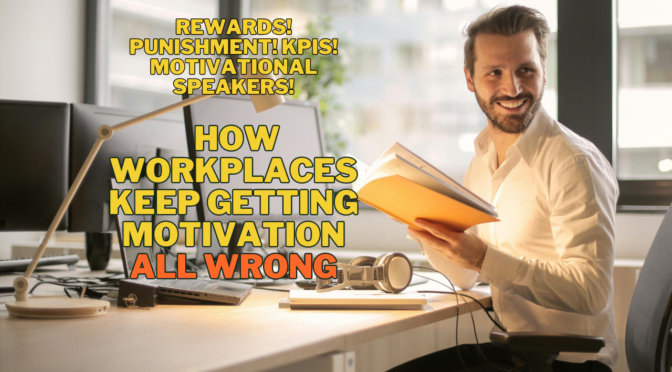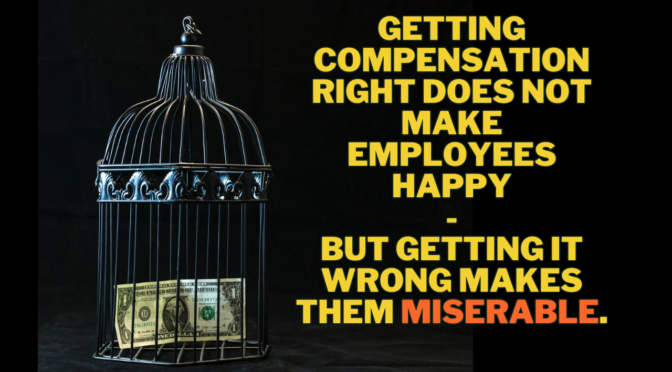The decisive question for man is: Is he related to the infinite or not? That is the telling question of his life. Only if we know that the thing which truly matters is the infinite can we avoid fixing our interests upon futilities and upon all kinds of goals which are not of real importance.
– Carl Jung
-
Quote
-
Book review: Pattern recognition
William Gibsons new book held a strange attraction for me, one I find it very difficult to explain.
We all know that Gibson has come a long way since the days of Neuromancer and the two followups, and pattern recognition is the logical conclusion to the direction his latest books have been taking. But at the same time, he also revisits themes and ideas from his cyberpunk books, especially from Count Zero.
(more…)
-
Synergic rule
I found a very interesting article by Timothy Wilken about synergic wealth and synergic rule. It examines the idea, that we would all be much wealthier if we pooled our resources instead of fighting over them. I can certainly agree to that.
Then it goes on to explore synergic rule or synocracy. This is a form of rule that is not based on majority decisions. Instead matters are discussed by all involved parties, and no decision is made, untill everybody is comfortable with the decision. The key point is, that if a decision entails a loss to somebody, that loss should be acknowledged and shared by everybody.
I find the idea extremely inspiring, and it repeats some themes from a few of my favourite books of late, namely Margaret Wheatley’s A simpler way and Tor Nørretranders’ Det generøse menneske. The former focuses on a new world view based on cooperation rather than competition, while the latter studies the origin and function of generosity in humans.
-
Chaordic leadership
While going through my bookmarks, I came across this article, where Dee Hock, the founder of VISA, explains his ideas of chaordic organization and leaderhip.
Here’s a sample from the article, that talks about when organizations achieve peak performance:
Every choreographer, conductor, and coach — or for that matter, corporation president — has tried to distill the essence of such performance. Countless others have tried to explain and produce a mechanistic, measurably controlled process that will cause the phenomenon. It has never been done and it never will be. It is easily observed, universally admired, and occasionally experienced. It happens, but cannot be deliberately done. It is rarely long sustained but can be repeated. It arises from the relationships and interaction of those from which it is composed. Some organizations seem consistently able to do so, just as some leaders seem able to cause it to happen with consistency, even within different organizations.If this speaks to you, then you need to read Dee Hocks book “birth of the chaordic age”.
-
World laughter day
The first sunday in may is world laughter day. This is arranged by the global laughter movement, who see laughter as a way to promote opennes, peace and love. The world laughter day was celebrated all over the world today, and the biggest gathering was in Copenhagen. I went there with my friend Carsten, and we laughed together with around 2000 others. Great fun.
I took a course with the laughter club a couple of years back, so I’m actually a certified laugh instructor. The principle behind it is, that you do laughter exercises wich stimulate laughter, without you actually laughing at anything. It sounds weird, but it works extremely well. If there’s a laughter club near you, I can only recommend that you try it.
-
Storytelling in action
If you’d like to see a really good storyteller in action, now’s your chance. On six evenings in may, Svend-Erik Engh and guest speakers are telling stories in Kongens Have in Copenhagen. I heard him twice last year, and he’s really good.
You just show up at the appointed time, and the stories roll. He’s got mats to sit on and blankets for everyone if it gets cold. And it’s free. Read more about it here.
-
Quote
That’s hard ta say,” said the little chief. “Ya can’t never predict what old Coyote will do. Just about everything that could turn out two ways or more was invented by him, back when he Changed the world the first time. Before that, as ya may or may not know, everything could only turn out one way. There weren’t no crossroads, fer instance. Only straight paths that didn’t bend. Toss a coin, it always came up heads. And nobody died. That’s one o’ the things Coyote changed. He brought the wobble inta the world. Everything that turns out one way but could just as easy turn out the other. Good or bad. Dead or alive. Hungry or with yer belly nice and full.
– Michael Chabon in his brilliant new book Summerland
-
Book review: What should I do with my life?
Good question, huh? What exactly should you do with your life? Where is that one job that will make your life eternally happy and remove all doubt about whether you’ve made the right choice?
Well, Po Bronson has talked to a lot of people who have faced that very question, and he has some good news and some bad news for us in this book.
(more…)
-
Seminar pictures
The first Arena seminar was a tremendous success. You can read more about it here, and there are pictures here. Who would’ve thought that you can combine storytelling, visualization and happiness at work, but judging from the feedback we got, we pulled it off. More seminars are sure to follow!





